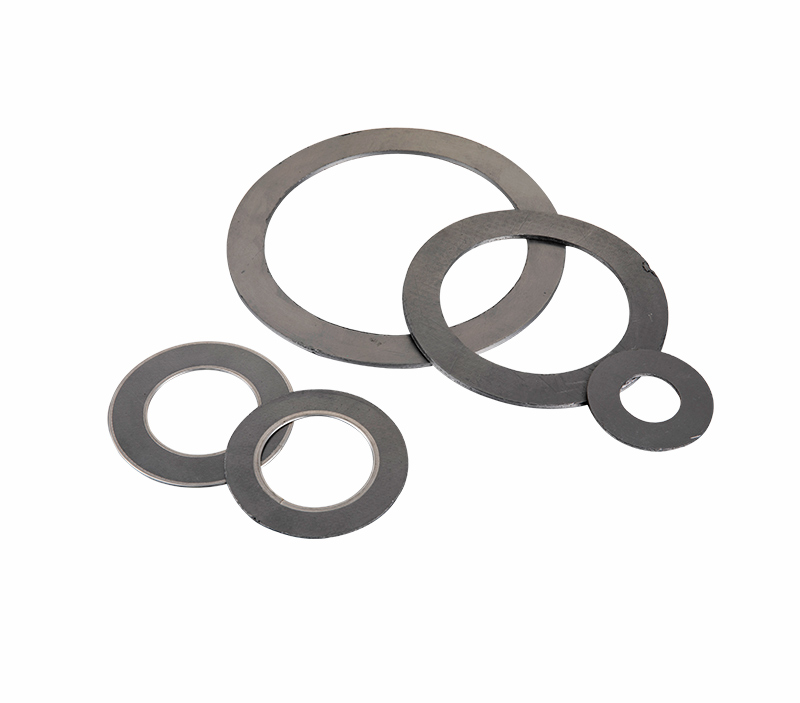Definition of Gasket
A gasket is a mechanical seal that inhibits leakage by filling gaps between static mating surfaces. It exploits the compressive force that drives the plastic flow of gasket material between two mating surfaces. Polished or unpolished surfaces, especially metal surfaces, have an inherent roughness or microscopic roughness that creates spaces through which fluids can pass. As the gasket deforms under the compressive force, it follows the contours of the surface and fills the gaps between its peaks and valleys.
Gaskets are widely used in every industry that handles pressurized or non-pressurized liquids and gases. They can be found in most equipment containing fluids, such as pipes, tanks, heat exchangers, internal combustion engines, etc. Gaskets vary in form and grade to suit specific applications.
Graphite gaskets are flame retardant, flexible and resistant to aging. It can withstand a large pressure difference. Gaskets can be used if high temperature and chemical resistance are required. Therefore, they are mainly used as flange seals in valves, pumps or degassing systems. Graphite products are available in a variety of materials: standard graphite or graphite with 316SS wire mesh inserts.

 English
English CHINESE
CHINESE Espana
Espana Arab
Arab Language
Language


